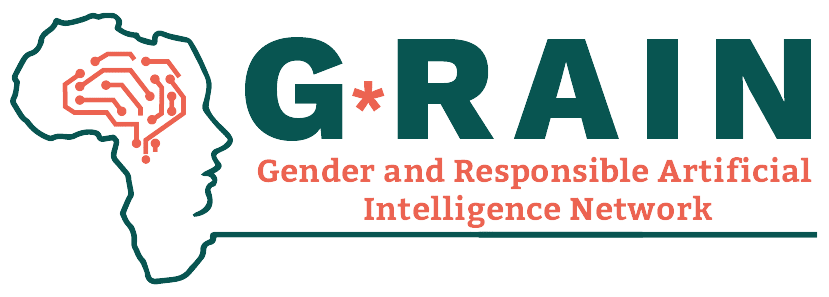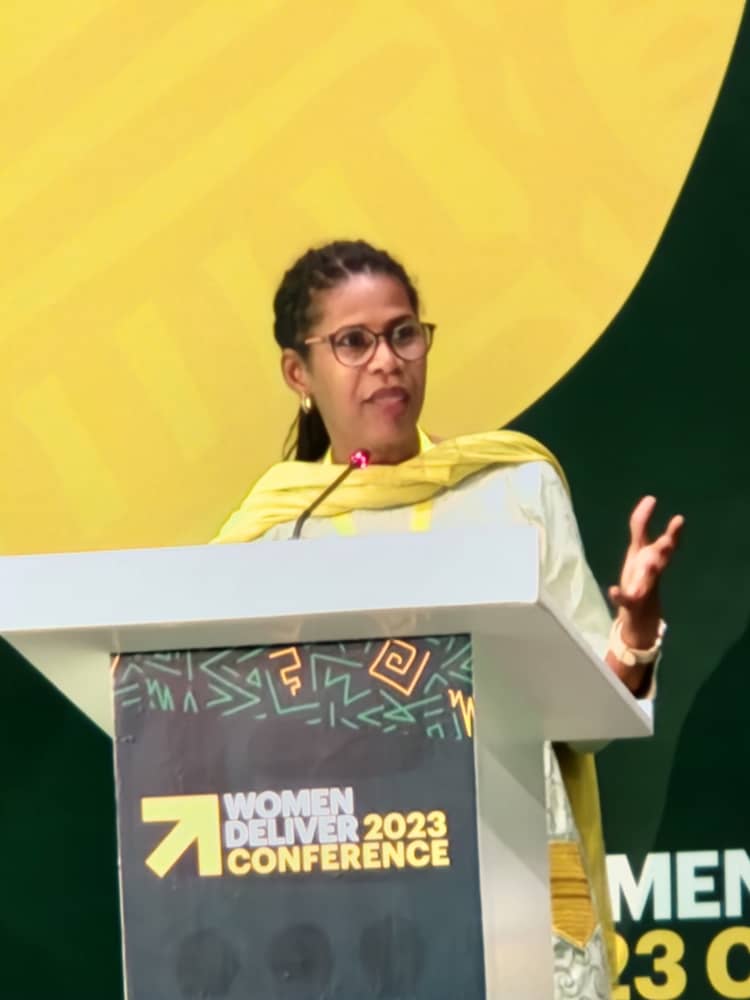The Women Deliver Conference (WD2023) is one of the largest multi-sectoral gatherings aimed at advancing gender equality. Co-created by women community advocates, civil society, multilateral governments, the private sector, philanthropic organisations and young people, representing communities facing systemic discrimination around the world, WD2023 brought together some 6,000 advocates on site and over 200,000 online advocates from diverse fields in Kigali, Rwanda, from 17 to 20 July. It focused on the theme of "Spaces, Solidarity and Solutions", and addressed issues such as Artificial Intelligence (AI) and gender inclusion.
With sexual and reproductive health and rights at its heart, the conference used intersectional feminist principles to address the complex issues affecting girls and women, from climate change to gender-based violence to unpaid care work, to identify and engage participants in collectively implementing evidence-based solutions.
Represented by its Research Director, Dr Laure Tall, the IPAR gave a presentation on Wednesday 19 July on the theme of "Catalysing feminist and responsible evidence-based artificial intelligence to improve women's health", at a session organised by Canada's International Development Research Centre (IDRC) on the fringes of WD2023.
The aim of this session was to explore how research can be used to catalyse the responsible development and deployment of AI innovations to advance maternal, sexual and reproductive health and rights through health system strengthening in low-income countries, developing countries and countries in transition. Responsible means "AI innovations that are ethical, respect human rights, are inclusive, equitable and contribute to environmental sustainability". In short, the aim of this session was to give participants a better understanding of the challenges and issues associated with AI in the field of women's health, as well as the possible solutions and opportunities for addressing these challenges through research.
According to the WHO, maternal, sexual and reproductive health indicators in low-income countries are not keeping pace with other health indicators. Levels of maternal mortality are far from reaching the target of MDG 3 (Good health and well-being). In addition, it is reported that the prevalence of child marriage and teenage pregnancy remains high, and there are significant gaps in access to contraception, safe abortion and post-abortion care, as well as sexual and maternal health education.
AI, a powerful lever for advancing gender equality
In her presentation, Dr Tall pointed out that "the time needed to achieve gender equality is now estimated at 136 years". She did, however, suggest some ways of avoiding waiting that long. According to her, "if we don't want to wait 136 years, we need to harness the power of AI, a lever for bridging the gap, effectively and responsibly".
She also pointed out that "current data do not provide a complete picture of women's health, particularly in the countries of the South". According to her, "there is a need for disaggregated data, and disaggregating data is not as simple as counting men and women". Dr Tall added that "data collection for AI also requires intersectional approaches".
"Artificial intelligence (AI) has shown promise to improve the provision of information and services relating to maternal, sexual and reproductive health and rights. For example, chatbots and telemedicine have proved acceptable and practical in a variety of contexts," she added.
The use of AI does, however, entail risks that need to be mitigated, warned the IPAR Research Director, pointing out in passing that the risks and potential drawbacks of using AI, particularly with regard to privacy and confidentiality, give rise to serious concerns. It is essential, she says, to "protect vulnerable women and girls from unintended consequences such as stigmatisation, discrimination and intimate partner violence".
The session was moderated by Samuel Oti, Senior Programme Specialist, IDRC, and attended by Kathryn Toure, Regional Director, IDRC Regional Office for Eastern and Southern Africa.
Alongside Laure Tall, Research Director of the Initiative Prospective Agricole et Rurale (IPAR), Senegal, the session also saw the participation of Dr Noor Sabah Rakhshani, PHC Global (Pakistan), Dr Rosalind Parkes-Ratanshi, Institute of Infectious Diseases (Uganda), Dr Cintia Cejas, Instituto de Efectividad Clínica y Sanitaria (Argentina) and Dr Nadine Sabra, Global Health Institute, American University of Beirut (Lebanon).
On Monday 15 May 2023 in Saly, the IPAR took part in a "panel of experts on artificial intelligence as a lever for development". Read more
IPAR is continuing to implement the LATCH project in pilot countries. After Senegal, Burkina (CEDRES) and Read more






